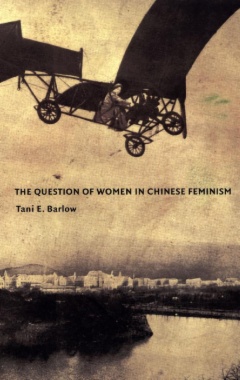The Question of Women in Chinese Feminism is a history of thinking about the subject of women in twentieth-century China. Tani E. Barlow illustrates the theories and conceptual categories that Enlightenment Chinese intellectuals have developed to describe the collectivity of women. Demonstrating how generations of these theorists have engaged with international debates over eugenics, gender, sexuality, and the psyche, Barlow argues that as an Enlightenment project, feminist debate in China is at once Chinese and international. She reads social theory, psychoanalytic thought, literary criticism, ethics, and revolutionary political ideologies to illustrate the range and scope of Chinese feminist theory’s preoccupation with the problem of gender inequality. She reveals how, throughout the cataclysms of colonial modernity, revolutionary modernization, and market socialism, prominent Chinese feminists have gathered up the remainders of the past and formed them into social and ethical arguments, categories, and political positions, ceaselessly reshaping progressive Enlightenment sexual liberation theory.
- Contents
- Acknowledgments
- Introduction
- 1 History and Catachresis
- 2 Theorizing ‘‘Women’’
- 3 Foundations of Progressive Chinese Feminism
- 4 Woman and Colonial Modernity in the
Early Thought of Ding Ling
- 5 Woman under Maoist Nationalism in the
Thought of Ding Ling
- 6 Socialist Modernization and the Market
Feminism of Li Xiaojiang
- 7 Dai Jinhua, Globalization, and 1990s
Poststructuralist Feminism
- Conclusion
- Appendix to Chapter 1: Historiography
and Catachresis
- Notes
- Works Cited
- Index

